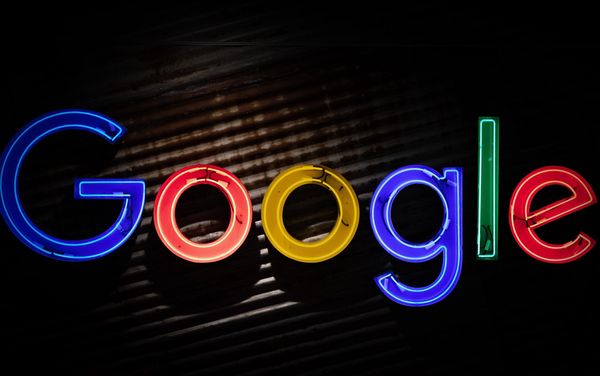Google is laser focused on improving its search results to show the users something useful and relevant to their search query. This is why they are constantly updating and changing their algorithm.

In their book, the client is the most important figure and they always have to be satisfied with what they get. People often feel like updates are not done that often, but the fact is that Google is sometimes daily changing things. Of course, it’s not always something major. Sometimes, it can be an incremental change.
Google doesn’t announce these small changes because they can be irrelevant to the overall process, but they do announce big changes as they are detrimental to the success of the pages they rank.
This is why most businesses hire a SEO professional to keep an eye out for these changes, forecast them and apply necessary practices to ensure everything goes smoothly. Still, people always get confused about what changed and how it affects them.
Table of Contents
The purpose of updates

Everything changes and evolves and so have the users and their needs. While they used to be much less demanding, any informed user will now protest at the poor quality of search results delivered. The purpose of updates, consequently, is to improve the results the search engine can deliver.
Something that may have been the main factor in your ranking five years ago could be completely irrelevant now.
As they make thousands or tiny updates on a yearly basis, but only announce the major ones, it’s worth to take a look at what that means for you. Google started their strive for better results in 2003 with their Florida update which meant that all overly optimized content will get removed.
Overly optimized meant keyword stuffing, adding invisible or hidden text and so on. Things evolved from there to getting rid of manipulative linking and other techniques for backlinking that did not agree with the official guidelines.
After that, they focused their attention on the content. They penalized or banned all websites that had too many ads blocking the content. They also made sure that content was locally relevant.
Then came the Google Payday Loans update which targeted the removal of spammy content from shady industries including titular payday loans, casinos, debt, pharma or porn. Then they fixed the search console to make it more conversational and that relevant results would appear. They also improved the voice search.
The next big update gave us the necessity for mobile friendliness. They ranked mobile-friendly websites higher than those that weren’t and focused on quality of content on mobile. Soon after, Google started using the mobile version of websites for indexing.
Then came RankBrain which is one of the main ranking factors. This is an algorithm which filters the results in order to deliver the best answers.
Penguin was the next big thing because it worked on devaluing links rather than pages. Then they made updates which focused on poor quality content, user experience problems as well as advertising that didn’t deliver what was asked for.
Google continues to focus on the relevance of the content it provides and rewards websites which respect the guidelines. If you started to appear lower on the results, this probably means that there’s better, more relevant content out there – and this is the main purpose of BERT, the newest update.
The main focus
Google has changed a lot in the past few years, from appearance to the way it works. This means that they also started to value certain factors more, possibly some new ones. Backlinks used to be the key to getting a good ranking, and they still might be, but content is becoming more and more important. Specifically, high-quality content. Check out these official guidelines to quality content.
So, at the moment, there’s nothing more important than creating really relevant, super-targeted high-quality content.
The most important ranking factor
There are many things that matter to Google – site quality, loading speed, etc. But what matters the most is the user and their needs. The value which user places upon content is the most important ranking factor.
For example, when a user googles something, their choice of page to enter is influenced by what Google delivers. But then, out of those pages, the user is the one that gives a reward to a specific page. The results are influenced by the interests of the user, language and location, as well as what they searched for previously. You can take a look at which updates brought us this and which updates may fix it in The Complete Guide To Google Algorithm Updates. Of course, this approach isn’t without its problems.
Localization can be a huge problem, for instance. Imagine that you’re on a vacation, and you want to google something in your own country, in your own language. And yet, the search results show you something relevant to the country you are vacationing in, or in that language.
Even if you use your language, the results can be problematic.
The way your user experiences your website is also a detrimental factor, although indirect. They essentially measure how happy the user is with your site.
The utility of guidelines
Some of the main guidelines Google offers are as follows:
- Originality in all aspects, no duplicate or plagiarized content
- A thorough description of the topic at hand
- Offering useful resources and interesting elements from studies and research
- Don’t use exaggeration, clickbait or fake news
- Use expert opinions to add trust and authority to your site
- Fact-check to make sure you have the right information
- Make sure that spelling and grammar are done properly
- Ads shouldn’t block the content
- The content shouldn’t be mass-produced
- The content should be mobile friendly
Follow these guidelines, and your pages will rank well with Google, or at the very least, they won’t get penalized.
There is a more comprehensive guide where you can find various explanations. But, in essence, Google will look at your expertise, trustworthiness and authoritativeness.
They want you to make your content direct, helpful, understandable, with visual elements to break it up and facts supported by sources. Don’t just repeat what has been done to death before, and if you do, make sure that it has a unique take or some new information.
